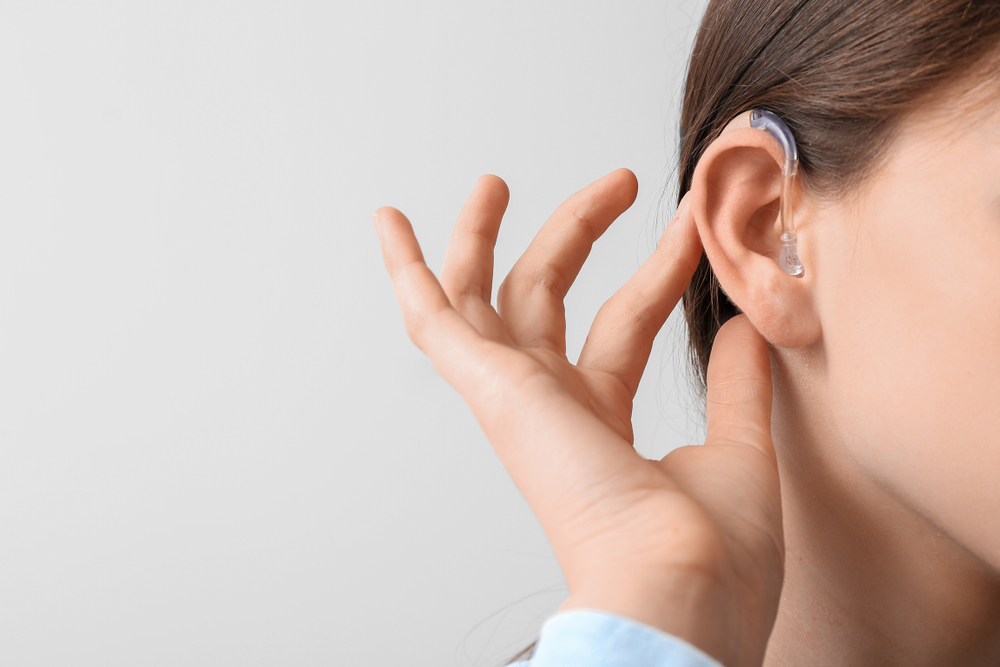- The purpose of a hearing aid is to make sounds more audible for people with hearing loss.
- Hearing aids are not the cheapest devices to own but ultimately, they are an investment in yourself that should last for years.
- Places like Lively, Eargo, and Costco offer plenty of affordable options you can consider.
- The only way to find out if hearing aids are right for you is by speaking with a specialist.
Hearing aids are savvy devices that can benefit many people with hearing loss. According to the National Institute on Deafness and Other Communication Disorders, about 28.8 million U.S. adults could benefit from using hearing aids. Despite how helpful this device is, fewer than 30 percent of adults aged 70 and older have ever used them. Search online to learn more about whether a hearing aid is right for you.
If you’re experiencing hearing loss, there are a variety of hearing aids available. You can compare what each device has to offer with an online search.
Here’s some information on hearing aids and a few affordable options to consider.
How Do Hearing Aids Work?
The purpose of a hearing aid is to make sounds more audible for people with hearing loss. According to Hopkins Medicine, they do this by amplifying sound through the following three-part system:
- The microphone receives sound and converts it into a digital signal;
- The amplifier increases the strength of the digital signal, and;
- The speaker produces the amplified sound into the ear.
The Mayo Clinic says most hearing aids are digital and powered with a traditional battery or rechargeable battery.
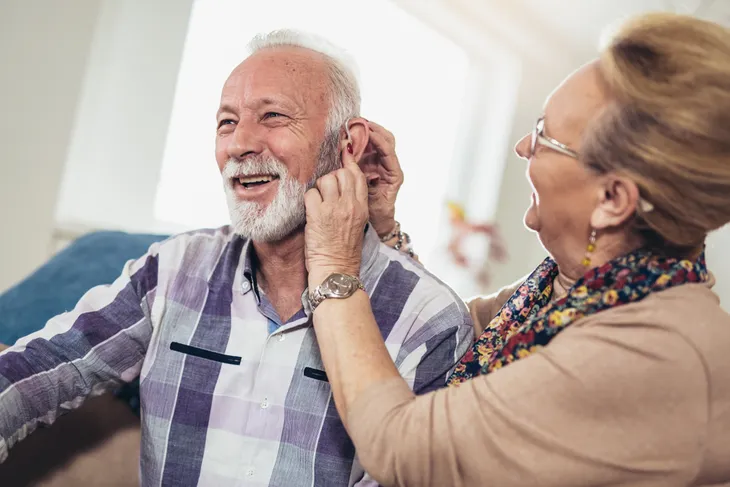 adriaticfoto / Shutterstock
adriaticfoto / ShutterstockBenefits of Hearing Aids
Besides the obvious benefit of hearing better, there are plenty of advantages to wearing a hearing aid. Everyday interactions with people on the phone or in-person will be easier to understand. Communication with friends and family will be easier and you may experience more independence with less limited hearing.
Another perk to hearing aids is it may be easier to communicate with people when in busier environments. You can adjust the settings of your hearing aid to meet your needs and turn it off if the environment you’re in is uncomfortably loud.
Keep in mind that, unlike glasses which can give you 20/20 vision, hearing aids cannot restore normal hearing.
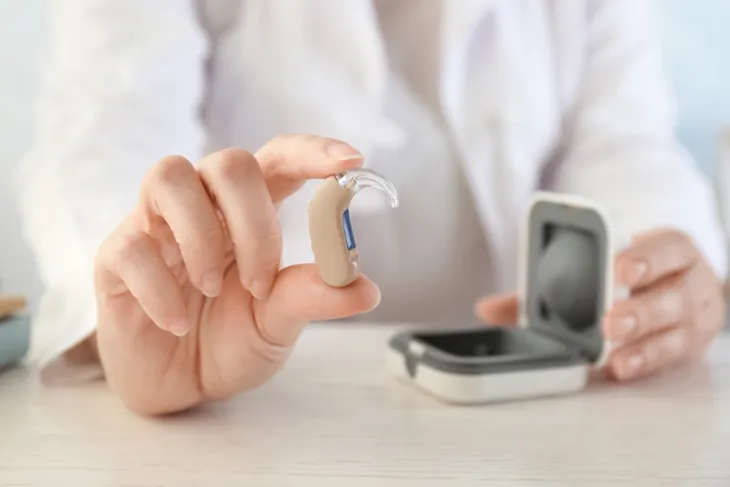 Africa Studio / Shutterstock
Africa Studio / ShutterstockWho Can Use Hearing Aids?
There are many people who could benefit from wearing a hearing aid but for some reason aren’t doing so. WebMD says people who have damaged their inner ear or nerve that links the ear with the brain are usually candidates for this device.
Damage can occur due to several factors, including disease, aging, loud noises, or medications. Hearing aids are ideal for people with an open ear canal and relatively normal external ear. The only way to find out if it’s right for you is by speaking with a specialist.
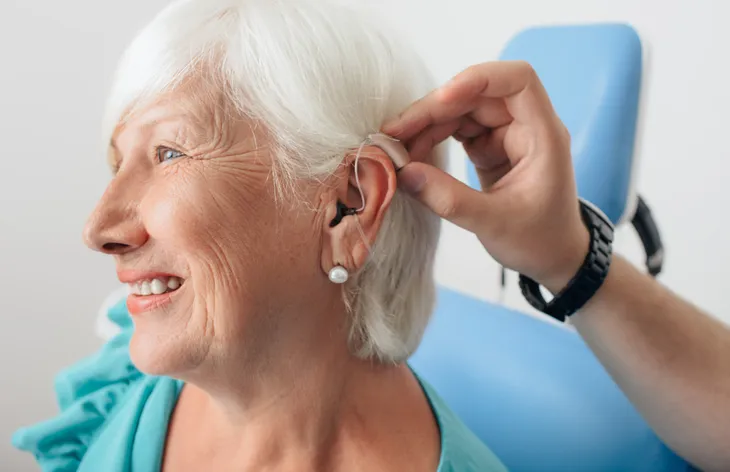 Peakstock / Shutterstock
Peakstock / ShutterstockTypes of Hearing Aids
Not all hearing aids are built the same. They can differ in design, technology, and special features. The Food and Drug Administration (FDA) says there are also various styles to shop for depending on your preference. Some offer a more discreet appearance, whereas others are more visible.
You can try out the different types of hearing aids to find one that you like the best. The various styles of hearing aids include:
- Behind-the-ear aids;
- On-the-ear aids;
- In-the-ear aids, and;
- In-the-canal or completely-in-the-canal aids.
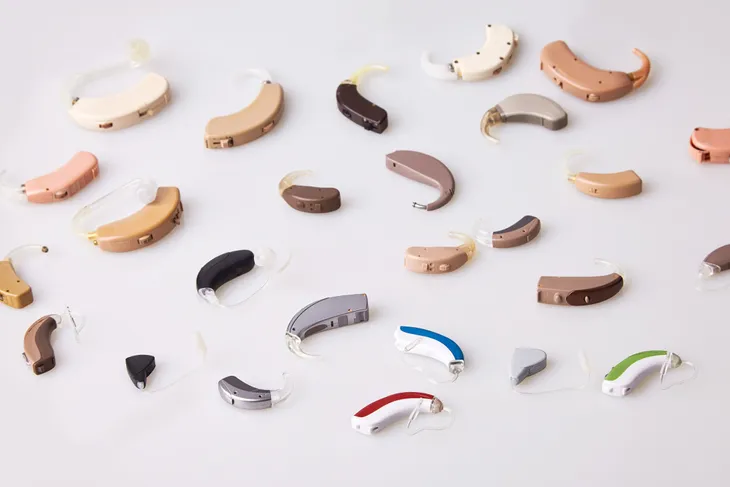 krolya25 / Shutterstock
krolya25 / ShutterstockThe Average Cost of Hearing Aids
Hearing aids are not the cheapest devices to own. But ultimately, they are an investment in yourself that should last for years. Healthline says the cost of hearing aids can range from $900 to $6,000 or more. Higher-priced devices often come with additional features such as tinnitus masking or Bluetooth connectivity.
You’ll have to shop around for a hearing aid that not only fits your budget but fits your comfort and hearing needs.
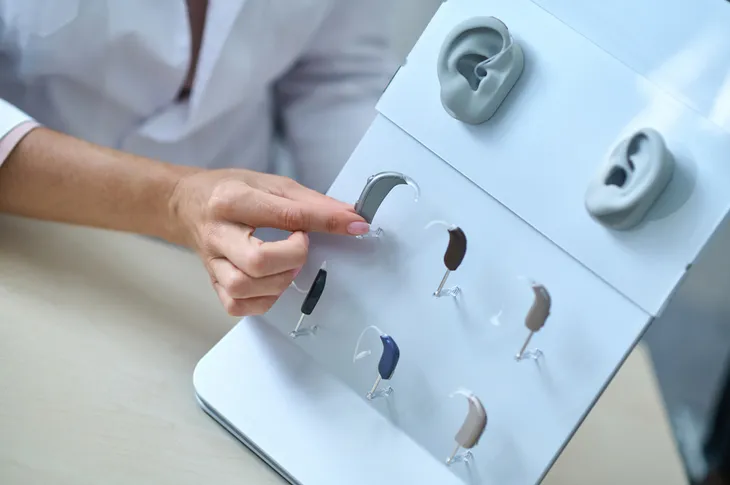 Dmytro Zinkevych / Shutterstock
Dmytro Zinkevych / ShutterstockLively
Lively can deliver a hearing aid right to your door just days after taking an online hearing test. You can speak to a specialist from the comfort of your own home and contact the Lively audiology team if you need assistance.
Hearing aids come with a 100-day trial, 3-year warranty, and financing payment options. Pricing ranges from $1,195 to $1,995 per pair and devices are available in multiple colors. The more advanced options come with extra features like enhanced natural sound and hands-free calling.
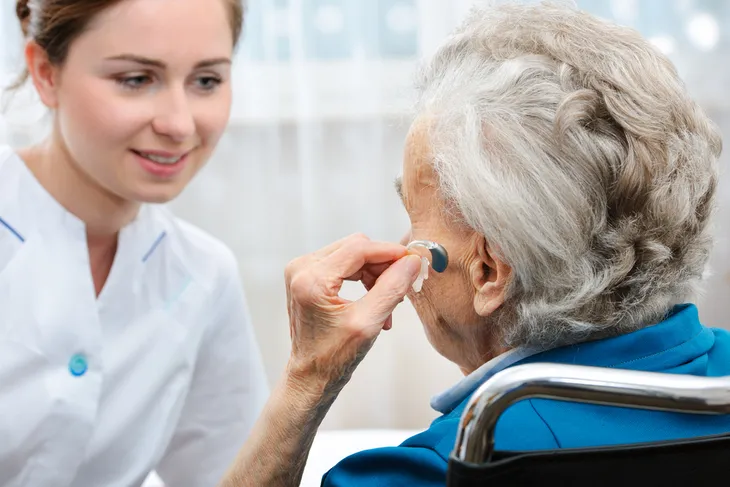 Alexander Raths / Shutterstock
Alexander Raths / ShutterstockEargo
Those looking for discreetly designed hearing aids will like what Eargo has to offer. There are four different hearing aids available with prices ranging from $1,450 to $2,950. What’s cool about the higher-priced devices is how it connects to the Eargo app, allowing you to personalize your hearing preferences directly.
Customers can enjoy up to 2-days of power on a single charge and sound that automatically adjusts as you move between rooms or environments. Plus, there’s a water-resistant model that can withstand up to 30-minutes at a water depth of less than 1-meter.
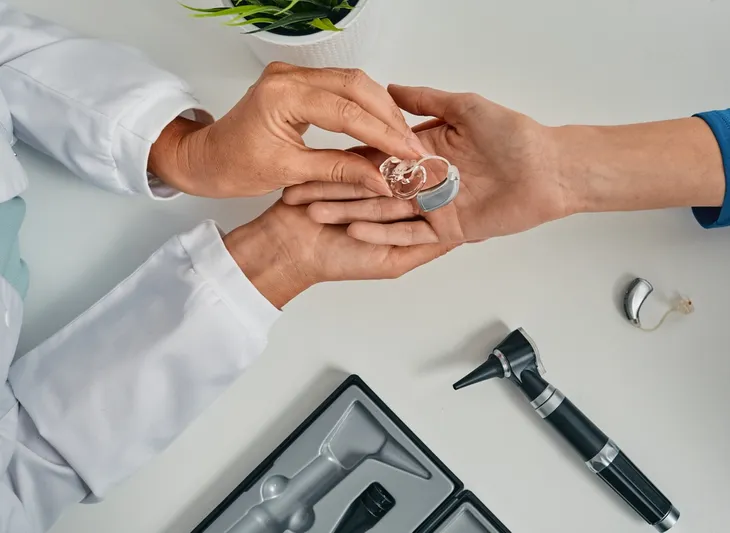 Peakstock / Shutterstock
Peakstock / ShutterstockCostco
On your next grocery trip to Costco, check out the Costco Hearing Aid Center. The warehouse sells premium hearing aid devices designed with an open-fit. You can visit the center for free hearing tests, cleanings, checkups, product demonstrations, and more.
Costco offers customers free loss and damage coverage with no deductible. You can purchase a pair for $1,399.99 and choose from five different colors. Plus, take advantage of free remote follow-up services and in-person appointments.
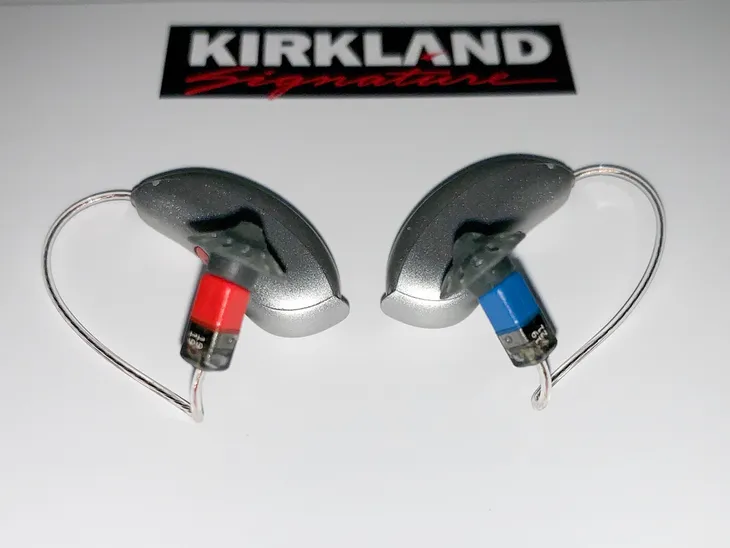 Leslie Brame / Shutterstock
Leslie Brame / ShutterstockSigns of Hearing Loss
There are many people who could benefit from wearing a hearing aid, but don’t actually wear one. Part of the reason might be that they have yet to be diagnosed with hearing loss. To find out if a hearing aid is right for you, make sure to see a doctor and undergo tests.
The Mayo Clinic says some signs of hearing loss may include:
- Muffling of speech and other sounds;
- Difficulty understanding words;
- Trouble hearing consonants;
- Requiring others to speak slower, clearer, and louder;
- Needing to turn up speaker volumes;
- Withdrawal from conversations, and;
- Avoidance of some social settings.
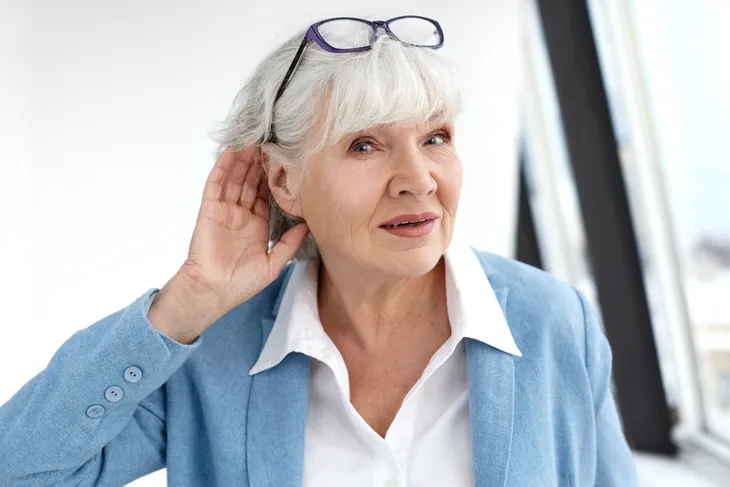 shurkin_son / Shutterstock
shurkin_son / ShutterstockDiagnosing Hearing Loss
After going through screening tests and a physical exam, your doctor will diagnose you with a type of hearing loss. This can determine whether or not a hearing aid is the right form of treatment.
There are three types of hearing loss. They are:
- Conductive: Involves outer or middle ear.
- Sensorineural: Involves inner ear.
- Mixed: Combination of the two.
You can discuss options with an audiologist to find a hearing aid that meets your needs and comfortability.
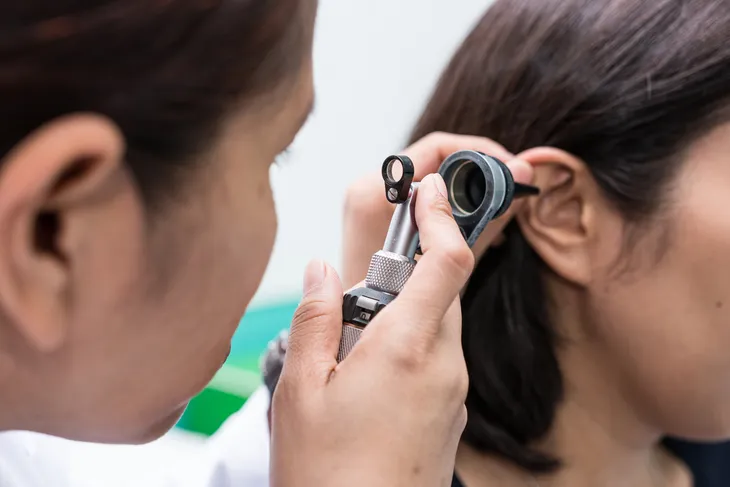 Bangkoker / Shutterstock
Bangkoker / ShutterstockRisk Factors for Hearing Loss
While anyone can experience hearing loss, some people are more at risk of developing it. This may be due to biological and environmental factors.
Some risk factors of hearing loss to be aware of include:
- Short-term exposure to loud noises;
- Long-term exposure to loud noises in the workplace;
- Ear infections, earwax buildup, or ruptured eardrum;
- Aging;
- Damage or trauma from an accident or injury;
- Heart disease, hypertension, and strokes;
- Diabetes, and;
- Family history of hearing loss.
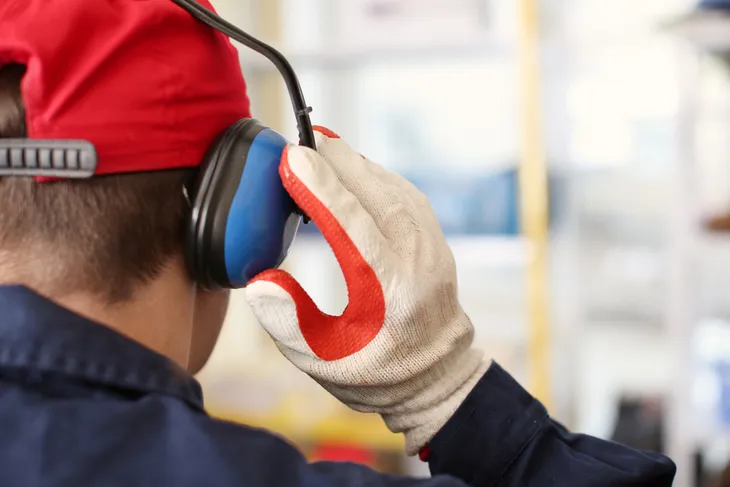 Africa Studio / Shutterstock
Africa Studio / ShutterstockTalk to Your Doctor About Hearing Aids
If you’re experiencing hearing loss that has gotten gradually worse, then it’s time to see a doctor. They can diagnose you with a type of hearing loss and help you decide on a form of treatment. Not all types of hearing loss require hearing aids as a treatment, but that can only be determined if you go through the proper testing.
Hearing aids can help make your life easier. There are more affordable options for sale and styles to choose from according to your preference. To learn more about hearing aids, start a search online and consult a doctor to discuss your options.
 Inside Creative House / Shutterstock
Inside Creative House / Shutterstock